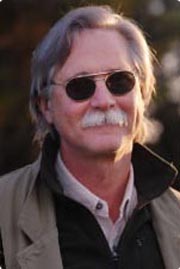Every published author will tell you that a great copy editor is a gift from God, and have horror stories about those more in Satan’s camp. I’ve had both. Now that I’m busy with the editorial process, the importance of great copy editing has become even more apparent.
There’s a big range of capabilities different copy editors bring to their roles. Some are basically proofreaders, who concentrate on typos, spelling, punctuation, format screw-ups, like a bad break in the middle of a sentence, things that are objectively incorrect. But beyond that, there’s a lot of room for thoughtful interpretation. Especially for things like commas, colons, semi-colons, quote marks, dashes, and so on. These can have a big impact on style and meaning. The copy editor has to understand the author’s intent, his or her distinctive voice, to know how to properly suggest how these guideposts should be arranged.
Great copy editors also delve into grammar, usage, syntax, continuity, fact checking, historical accuracy, repetitive or poor word choice, character consistency, even unintended pejoratives – many of the things developmental editors also attend to. This means they have to have a good understanding of the author’s unique style, not only to catch and correct tiny errors, but to maintain a clear understanding of the storyline itself.
A gestalt on the work as a whole.
A not-so-good copy editor is either someone who just misses too many goof-ups, or worse, one who conforms to strict definitions of formal rules. When I was in advertising, I sent some copy to a bigwig for approval. After checking for technical accuracy, he turned it over to his admin, who was a former English teacher. I got it back all marked up with a red pen. She took out all my contractions, re-attached the split infinitives, and after making sure there were no incomplete sentences, ganged them up into long paragraphs. Thus taking all the life out of the prose.
I thanked her for her help, and sent her a huge stack of long-form brochures asking her to apply her magic, and never heard from her again.
My favorite copy editors either come from journalism or advertising. Those professions teach you how to keep the writing from straying too far from acceptable standards, but also that style must be a flexible thing, who appreciate the whole and do not distort the author’s voice by fussing over irrelevant particulars, or imposing rules that were first established in the eighteenth century.
I work with a lot of beta readers who I ask to ignore typos and misspellings, hoping to keep their attention on the greater work. This is easy for me, since I’m the world’s worst proofreader. And utterly dependent on great copy editors, who are the lifeguards in the narrative stream.
 Chris Knopf is an author of mysteries and thrillers, and a co-publisher at The Permanent Press.
Chris Knopf is an author of mysteries and thrillers, and a co-publisher at The Permanent Press.
